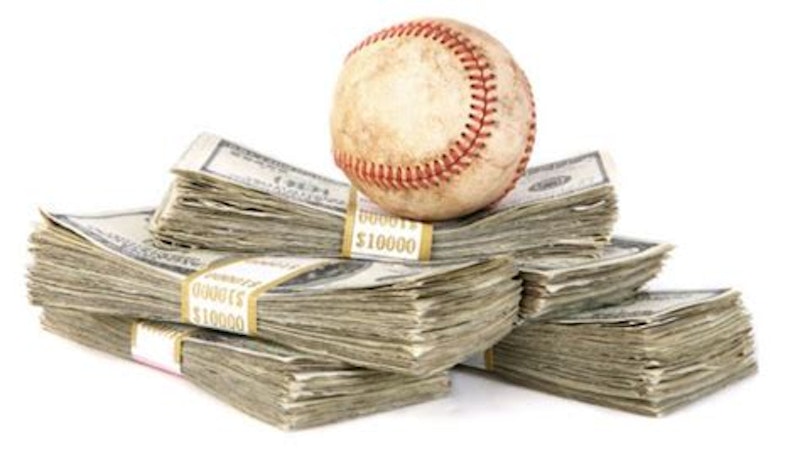As the balmy heart of the baseball season nears, it's time to tackle a burning question: what’s your favorite team up to? Is there any enthusiasm to be found in the arrival of players whose prime seems to be behind them, those on the tail-end of their careers, or those yet to make a significant impact in the major leagues?
But the more pressing concern is: How should I react to any free agent signing in the wide world of sports that doesn't include prodigious talents like basketball superstar Giannis Antetokounmpo or home run hitter Bryce Harper? Should I even spare a moment's concern that the Los Angeles Rams might introduce washed-up wide receiver Antonio Brown to their squad? Or that the towering center Thon Maker could end up getting a third chance at a first start for the Charlotte Hornets?
Free agency—which has always captivated MLB fans, particularly during the era when certain athletes seemed to defy aging during the offseason—provides ample fodder for sports pages nationwide. Occasionally, as with the heavily-hyped, Odell Beckham-fronted 2019 Cleveland Browns, it gives writers the chance to dream, envisioning that an infusion of seasoned athletes can elevate their teams to steamroll the ever-struggling franchises like the Arizona Cardinals or New York Jets.
However, the bulk of free agent signings amount to little, and for a sound reason: many players who reach free agency are either past their peak, weren't top-tier to begin with, or are unlikely to improve substantially. This is particularly true in sports like basketball and football, where a significant number of players suffer career-altering injuries, and those who avoid such mishaps often grapple with debilitating wear and tear. Don't believe me? Listen in on a conversation at your nearest university cafeteria, where you'll often find students reminiscing about their truncated athletic careers.
Picture the cafeteria as a metaphor for free agency. Pretend you're the Angels General Manager, Perry Minasian, and you're working on a limited budget because you’ve stashed all your money in a pair of generational talents, Mike Trout and Shohei Ohtani (if you somehow meet Ohtani’s insane free agent price tag), yet they still can’t get your franchise into the playoffs. Premium, top-performing options are off the table. But you need to keep the team competitive—and consistently so—over the next 162 games. You end up opting for a practical sandwich, some Nick Castellanos-grade player and his accompanying 2.0 WAR, over a lavish steak.
Here's the catch: having chosen the sandwich, you're now obligated to advertise it vigorously. You hang banners from your stadium, celebrating the arrival of this sandwich. You take it on a tour of local sporting goods stores for autograph sessions, drawing the 20 or so little league players brought in by their star-struck parents. You even go on local sports radio, promising the host that this sandwich is the missing piece in your championship menu.
And you, as GM Minasian, must do this repeatedly. At times, you may acquire a green piece of fruit, at which point you'll find yourself reassuring the fans that the fruit will ripen in time, and it’ll be worth the wait—“we’ll develop another Trout or sign another Ohtani from overseas, just you wait.” Not this year, though. That underripe fruit might be batting under .200 and giving a subpar performance at third base, but it's the team's future All-Star slugger. Patience is key, isn't it?
Whenever the home teams don't pull through, it's easy to lay all the blame on management. Why did the Indianapolis Colts lock in a player like Carson Wentz to a long-term contract? What was the thought process? But pause for a second: why did you opt for that fast-food burger? What were you thinking when you bought that pack of cupcakes? The dollar amounts for these food purchases are minuscule in comparison, but the fact remains that we all make snap decisions we quickly regret. These choices are made because doing absolutely nothing isn't an option (and believe me, many teams have tried).
It's in this context that I can appreciate the tenure of former New York Knicks President, Phil Jackson. Though scorned by Knicks fans for turning a Carmelo Anthony-fronted team into a collection of inaccurate shooters, the NBA’s greatest head coach deserves some credit for attempting something we all did while playing NBA 2K: spending way too much money on the likes of Brandon Jennings, Courtney Lee, and Joakim Noah. Isn't that a foolproof strategy, locking up role players? If you have three players on your team averaging 10-15 points per game and you add two more who can match that, doesn't your team's overall scoring increase? More advanced metrics like usage, points per possession, and efficiency obviously can't sway the outcome. Just get five thirtysomething James Harden clones on the court at once and find some way to pay them each $50 million a year. Surely there's no way you can lose.
Jackson's Knicks lost a significant amount—around 57 percent of their games during his tenure from 2014 to 2017, to be precise. But hey, you're likely not feeling too great about that fast-food burger and extra-large pizza you just polished off, either. It gets better, though. Cross the international date line a few times and you’ll realize it’s always tomorrow somewhere.

